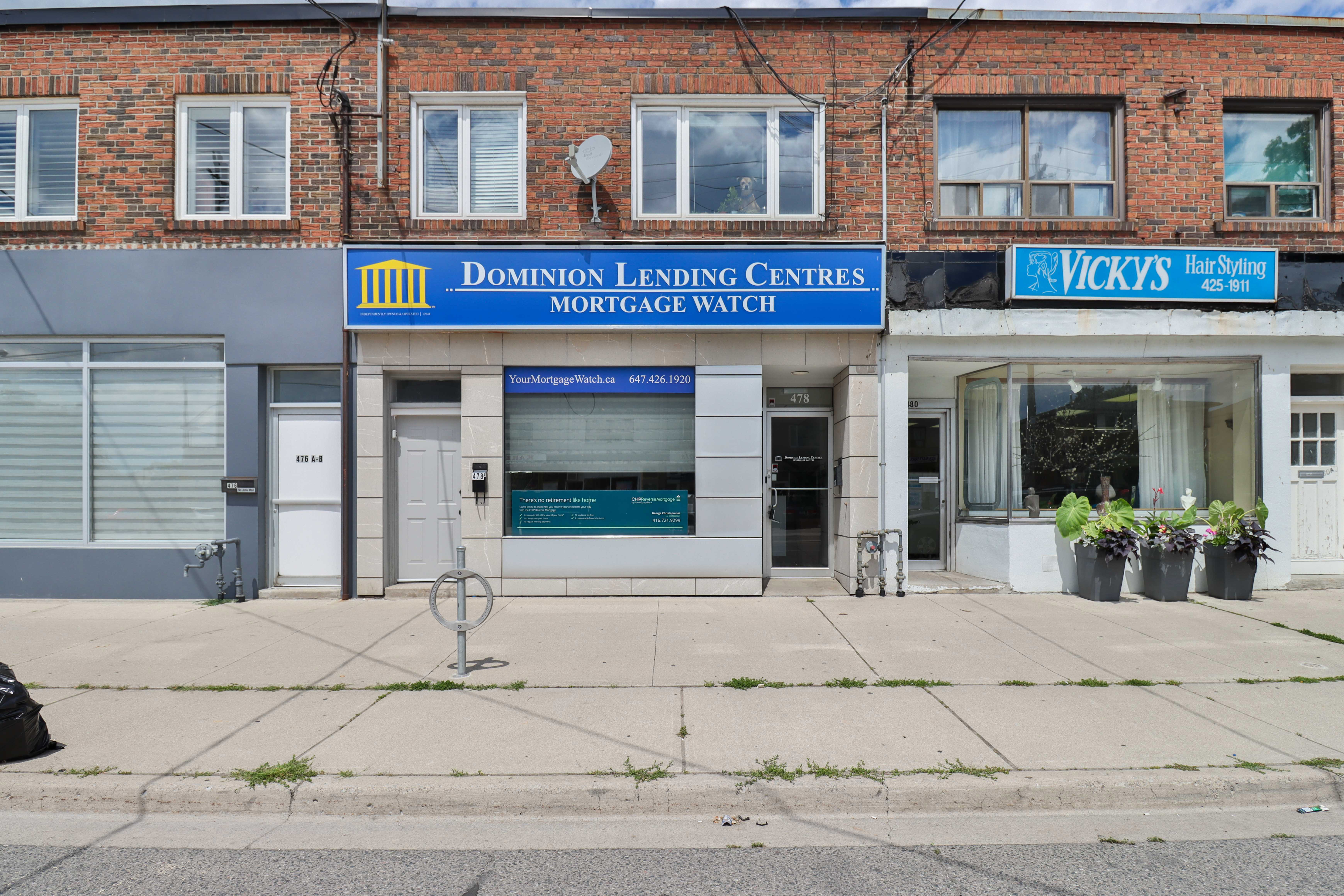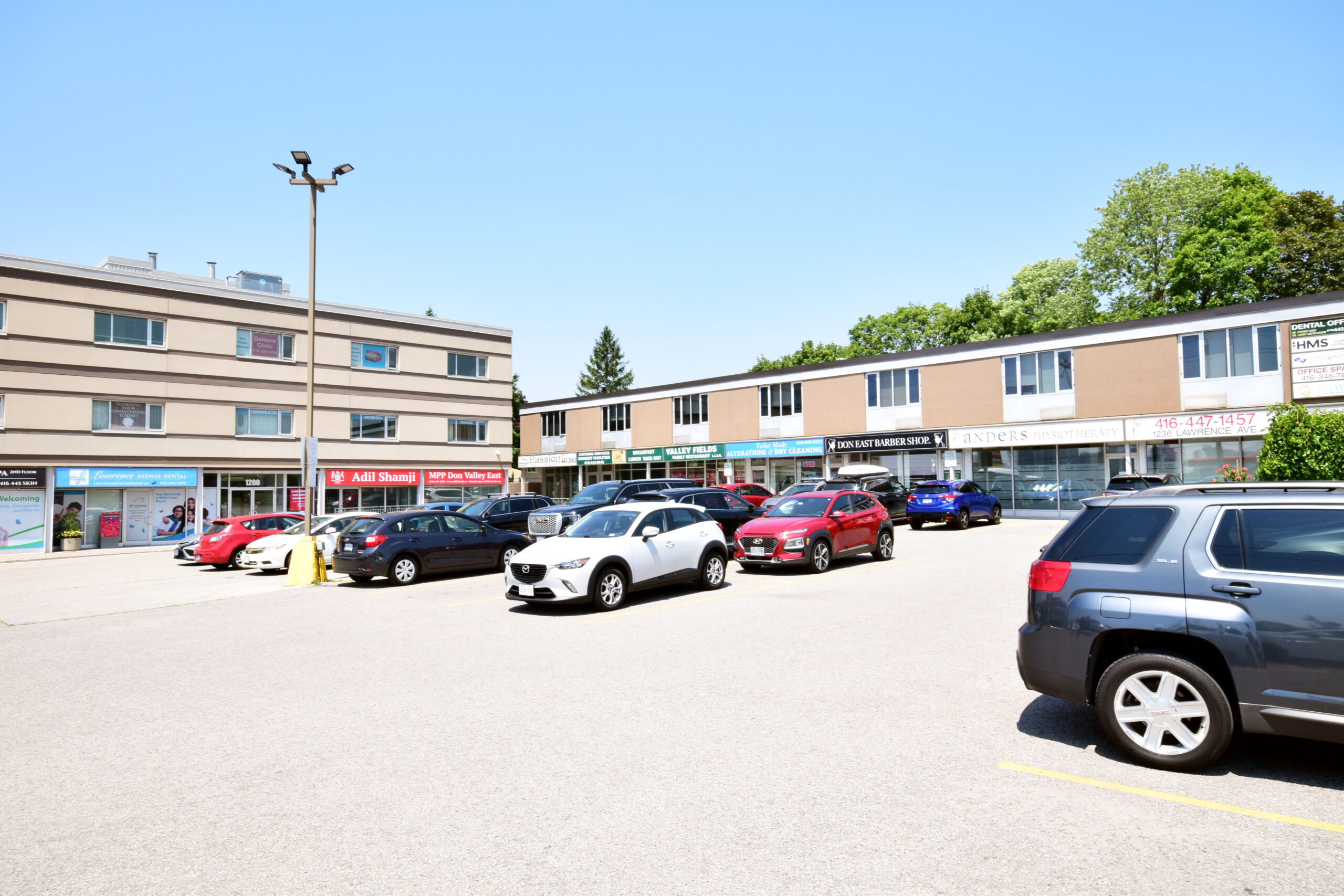Author The Lilly Commercial Team
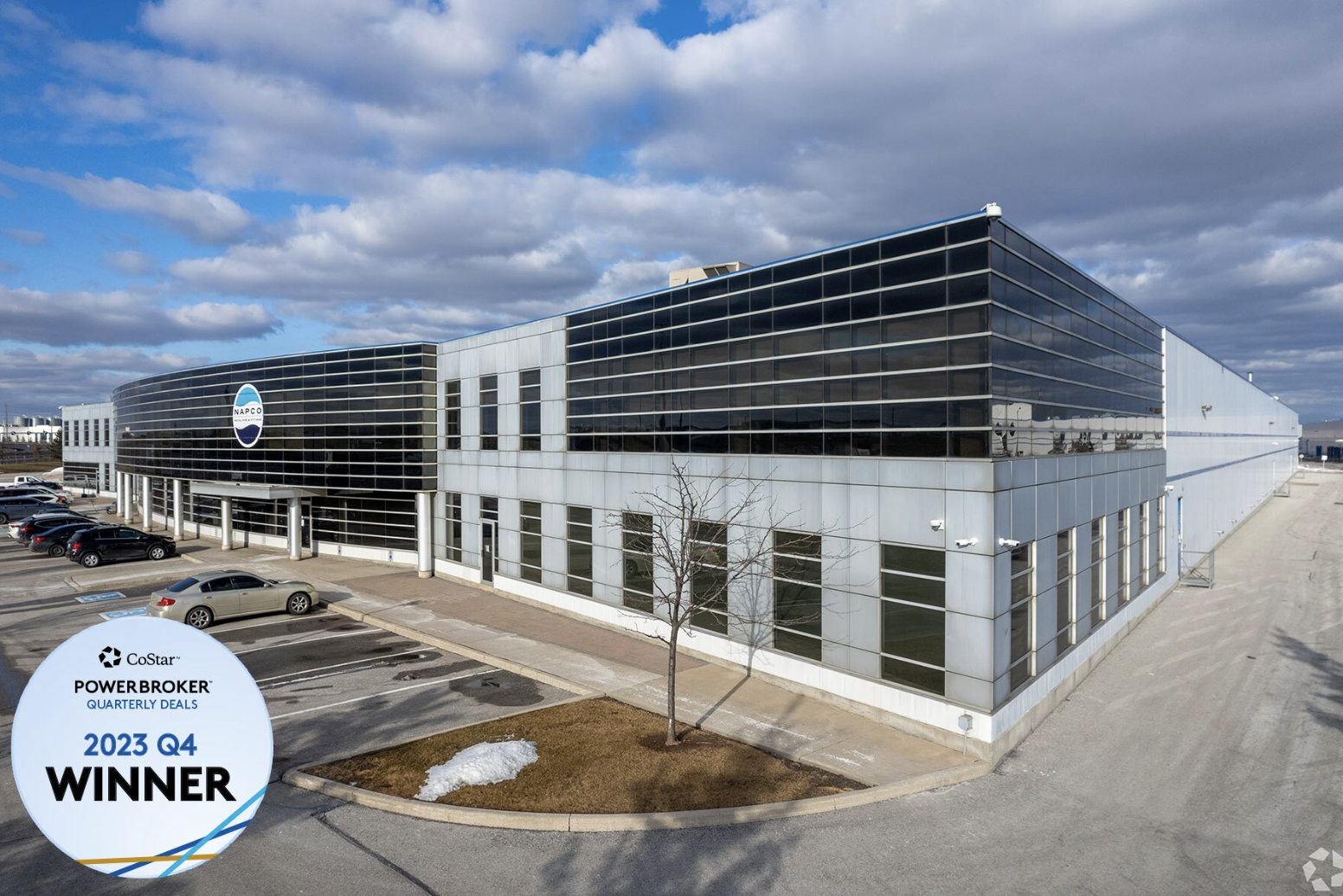
Top Sales and Leases Recognized in Canada
TPG’s Purchase of Industrial Portfolio Marks Quarter’s Largest Deal
The $990 million sale of a 75% interest in two business parks in the Greater Toronto Area was Canada’s largest real estate transaction during the fourth quarter, making it one of the top deals recognized in the latest CoStar Power Broker quarterly awards.
Oxford Property Group sold the stake in the Class-A industrial properties to TPG, a global alternative asset management firm based in Fort Worth, Texas.
TPG sees the Greater Toronto Area as one of the most attractive industrial markets in the world. It said the joint venture offered it an opportunity to enter the market on a large scale by acquiring a 5.1 million-square-foot,10-property portfolio that included Brampton Business Park and Vaughan Business Park.
“We have followed the Canadian industrial sector for several years,” said Jacob Muller, a partner with TPG, in a commentary when the deal was announced on Dec. 18.
Oxford continues to manage the portfolio, which is fully leased and includes tenants with strong credit such as Mondelez, Best Buy, Campbells, and Olympia Tile. All are signed to longer-term leases.
“With this transaction, we generate significant capital to reinvest back into Ontario, which includes the million square feet of new [Greater Toronto Area] industrial developments we are set to deliver by 2026,” said Jeff Miller, head of North American industrial at Oxford Properties, in a comment on the deal.
The listing brokers were Peter Senst, Kai Tai Li and Matthew Brown of the real estate services giant CBRE. No broker represented the buyer.
Top Office Lease
Sobey’s Renews Lease in Toronto Suburb of Mississauga

The fourth quarter’s top office lease was in Toronto’s suburb of Mississauga, where grocery operator Sobeys signed a 237,000-square-foot lease at 4980 Tahoe Blvd.
The country’s second-largest grocery chain signed a 10-year lease at the six-storey building, with the ground floor operating as retail and the remaining floors being used for office operations. The start date of the lease was Oct. 1.
Gabrielle Mair of Metrus Properties was the leasing representative contact. Metrus Properties was founded in 1972 and is a member of the Con-Drain group of companies.
Orlando Espinola, vice president of real estate at Sobeys, was the tenant contact.
Top Retail Lease
Altea Active Snaps Up Nordstrom Rack Space

The top retail lease of the quarter was in downtown Toronto, where Avant, a luxury wellness and social club and a subsidiary of Altea Active, signed a lease at 1 Bloor Street East.
The company plans to open on the upper level of the former Nordstrom Rack space at the corner of Bloor and Yonge Street. It will have a dedicated street-facing entrance on Bloor Street in a building owned and managed by First Capital REIT.
The lease for 32,000 square feet was signed on Oct. 1. The lease kicks in on Feb. 1, 2025.
Eric Sherman, head of national operations of First Capital REIT, was the landlord and leasing representative. Jeff Flemington, senior vice president, director and broker at Avison Yong, represented the tenant.
Top Industrial Lease
Clorox Renews Warehouse Lease in Brampton

The Clorox Co. renewal of its warehouse space in Brampton northwest of Toronto, was selected as the top industrial lease of the quarter.
The global manufacturer and marketer of consumer and professional products agreed to a renewal deal for 334,784 square feet at 150 Biscayne Cres. The company, whose brands include Pine-Sol, Brita and Burt’s Bees, operates in about 25 countries and its products are sold by major grocery chains.
The lease was signed on Nov. 24 and kicks in on June 1, 2025 with a five-year term.
Sean Hoehn with Cresa Toronto Inc. represented the tenant on the deal. Nuspor Investments owns the property and represented itself.
Source CoStar. Click here to read a full story.
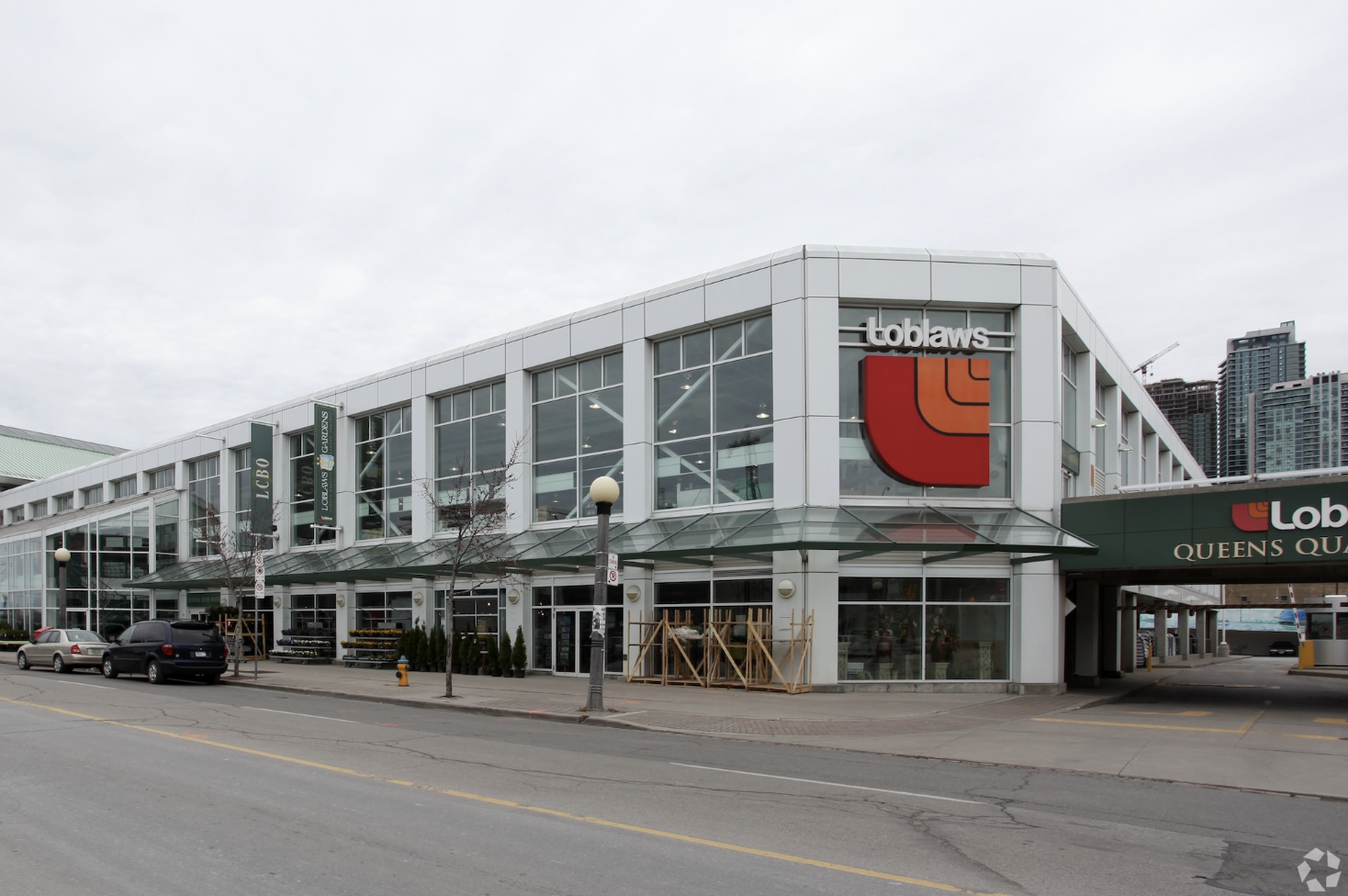
Country’s Largest Grocery Chain To Add 40 Stores This Year
Loblaw Companies Plans $2 Billion Investment Nationally
The country’s largest grocery operator, Loblaw Companies Ltd., plans to open 40 new stores in 2024 as part of an investment of $2 billion.
The Brampton, Ontario-based company, whose brands include Loblaws, No Frills and Shoppers Drug Mart, said in addition to the new stores, it will expand or relocate 10 locations and renovate more than 700 others.
“This year, we are investing where Canadians need it most. We will introduce more than 40 new discount stores and 140 new pharmacy care clinics in communities across the country, making healthcare and affordable food more accessible to more people,” said Per Bank, president and chief executive of Loblaw Companies Ltd., in a statement. “These investments in Canada are a catalyst for job growth and the creation of countless opportunities in our stores, in our company and with the many partners who work with us.”
The company said the capital investments are expected to create more than 7,500 jobs.
Loblaw Companies Ltd., majority-controlled by George Weston Ltd., will release its full-year results on Thursday.
The property arm of George Weston Ltd., 61.7% controlled Choice Properties REIT, said during an earnings call this month that it is focused on capital preservation and the development pipeline. The REIT’s real estate holdings are 79% retail, with Loblaws locations accounting for 57% of revenue.
Rael Diamond, president and chief executive of Choice Properties, noted the REIT added 1.8 million square feet of retail, industrial and residential space.
“Our retail tenants continue to expand their store networks,” said Diamond, on a conference call with analysts this month.
The REIT has budgeted for a $479 development pipeline, but 70% of the capital investments are going into Choice Properties’ growing industrial platform.
Michael Markidis, an analyst with the Bank of Montreal, said the REIT trades at a premium to peers but feels it is justified.
“We believe this is warranted given the strength of [the REIT’s] balance sheet and the proportion of income derived from its growing industrial platform,” said Markidis.
Source CoStar. Click here to read a full story.
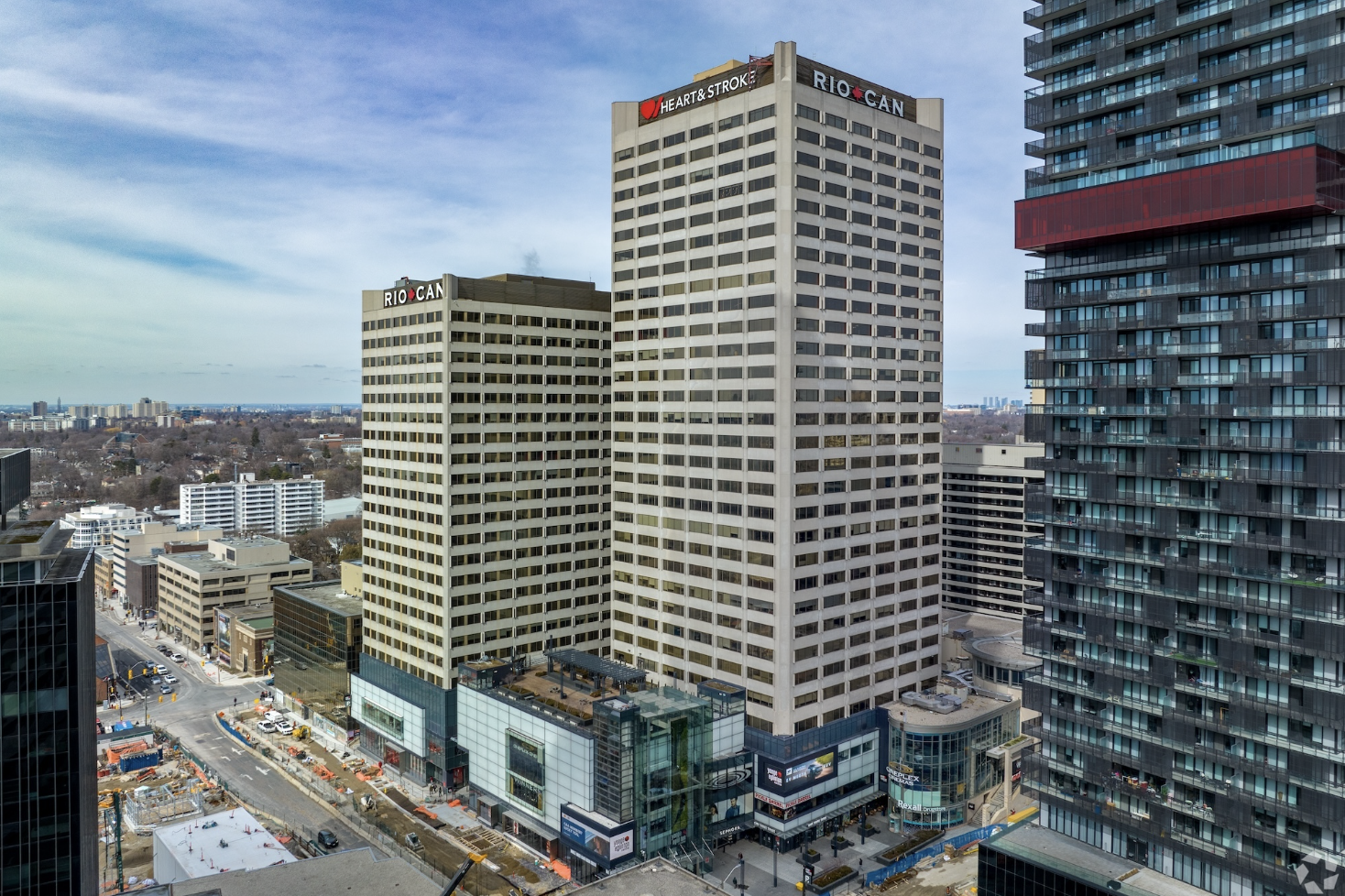
RioCan Raises Distribution Amid Strong Demand for Retail Space
Toronto-Based REIT Also Takes Quarterly Loss, Reduces Construction Spending
Canada’s oldest real estate investment trust hiked its dividend 2.8% as Toronto-based RioCan envisions strong growth in the retail sector.
Jonathan Gitlin, president and chief executive of RioCan, said the REIT continues to capitalize on Canada’s short supply of space and strong retail demand.
“We showcased historic operational strength, enhanced efficiency and achieved our financial objectives,” said Gitlin on a call with analysts. “This is the third consecutive annual increase as we provide sustainable distribution growth.”
The REIT saw retail occupancy rise to 98.4% for the fourth quarter that ended Dec. 31. That was up from 97.9% a year earlier. Spreads for new leases were up 13.2%.
RioCan recorded a loss of $117.7 million in the quarter compared to $5 million a year earlier, based on asset writedowns.
The REIT took a fair value loss on investment properties of $450.4 million in 2023 compared to a fair value loss of $241.1 million in 2022. The fair value loss in 2023 was driven by increased capitalization rate assumptions, partially offset by higher stabilized net operating income.
Gitlin told analysts the REIT is “exercising prudence” by reducing construction spending in 2023 relative to the previous year.
“This is a proactive measure. By temporarily scaling down construction spending, we allocate capital to highly productive and accretive uses such as debt repayment, providing third-party mortgages and more appropriate opportunistic acquisitions,” he said.
Residential Business
The REIT has continued growing its residential component known as RioCan Living that has 13 operating buildings representing 2,738 residential units. Eleven buildings are stabilized, and 96.5% are leased as of Feb. 13.
RioCan has slowed down its disposition program designed to focus on major markets and in 2023 it sold $295.4 million in assets.
Gitlin was asked by an analyst with CIBC World Markets what it would take to get the REIT to increase construction. Gitlin noted a lot of their projects are complicated, so decisions are multifaceted
“Interest rates and construction costs are significant elements to it. But there’s also predictability in the timing of the construction process, which we’re working with as best we can to get a little more clarity on that, and then there’s also just decisions around how else to allocate proceeds or funds at this point in time,” said the RioCan CEO.
Mark Rothschild, an analyst with Canaccord Genuity, said the steady growth at RioCan was offsetting the rise in interest rates.
“Operating fundamentals remain solid, and while there are growing concerns about a slowing economy, this does not appear to be a near-term factor in leasing,” said Rothschild in a note on RioCan.
Source CoStar. Click here to read a full story.

Townline Centre Changes Ownership in Multi-Million Dollar Deal
Salthill Capital Sells Courtice Shopping Complex for $28.8 Million
Salthill Capital’s in-house property management and brokerage team arranged the sale of Townline Centre, an 87,346-square-foot, grocery-anchored retail strip centre located in the community of Courtice, near Oshawa, Ontario, as part of a year-end transaction.
The retail property was purchased by a private investor for $28.8 million or approximately $329 per square foot.
Major tenants include grocery store FreshCo, a Chuck’s Roadhouse restaurant, pet supply store Pet Valu, and medical services provider Lakeridge Health.
The property was one of four retail centres in the Durham Region just east of Toronto that Strathallen Capital acquired in 2021 for its Retail Property Fund LP No. 5. Strathallen has since rebranded its company as Salthill Capital.
Source CoStar. Click here to read a full story.
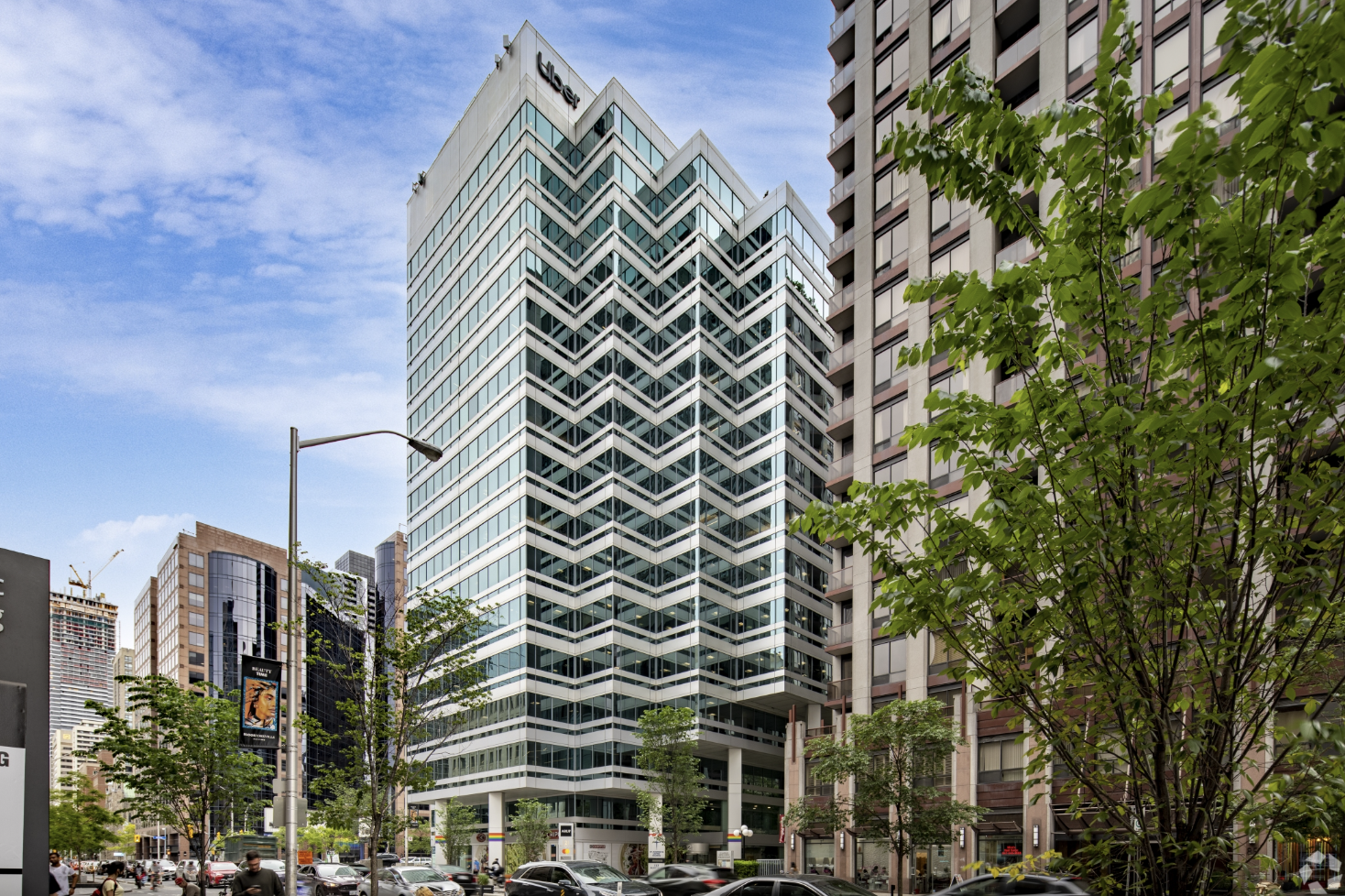
Downtown Toronto Building Home to Uber Up for Sale
CBRE Retained by Credit Suisse to Market Property
A downtown Toronto office tower that is home to an engineering hub occupied by ride-sharing company Uber has hit the market for sale.
CBRE has been retained to market the 16-storey tower once known as the Alliance Atlantis Building, named after the now-defunct media company. CBRE said it does not comment on its listings.
CBRE’s marketing brochure for the building said it is offering for sale a 100% leasehold interest in 121 Bloor St. E, a property that is institutionally owned and managed.
While the brokerage doesn’t list the seller, CoStar data indicates that Credit Suisse Real Estate Fund International has 100% land lease ownership that expires in 2061 with one renewal option for 20 years.
Officials with UBS Group, which bought Credit Suisse in 2023, could not be reached for comment.
The CBRE brochure notes the trustees of St. Andrew’s Congregation of the United Church of Canada are the lessors of the land for the 241,969-square-foot property.
Secure Cash Flow
The property, constructed in 1982, was long known as the Alliance Atlantis Building but now has Uber’s logo at the top of the building. Uber leased five floors in the building in 2019, refitting it with amenities that included indoor mini putt, e-scooters and kombucha on tap, according to media reports.
CBRE considers the property part of the luxury Bloor-Yorkville commercial corridor.
The property is 95% leased and, in addition to Uber, is anchored by design engineering firm Arup. Together, they occupy 59% of the space.
The weighted average lease term in the building is 5.6 years. The in-place average net rents are $27.75 per square foot, CBRE says.
“An investor benefits from a stable and secure cash flow that also permits compelling income enhancement opportunities given market net rents are approximately above 15% above contractual rates. As tenant flight to quality persists, Class A office towers at Bloor-Yonge are ideally positioned to capture the accelerating leasing momentum,” said CBRE in its listing.
The building was updated in 2012 with $4.5 million of capital expenditures.
A filing from Credit Suisse in 2020 said the property was purchased by its real estate fund in 2005 for just over $64 million. The fund owns another building nearby at 160 Bloor St. E.
In a report this month, CBRE said the downtown Toronto office market saw vacancy rates hit an all-time high of 16.7%. The real estate company noted rental rates have “paused their downward trajectory” with some uptick for recently completed projects.
CBRE said in a report last month that stabilizing interest rates has improved investor sentiment in real estate.
“While stronger investor confidence will rejuvenate investment activity, much of it hinges on the economy’s continued progress towards lowering inflation, for which the path forward remains shaky,” said CBRE.
Source CoStar. Click here to read a full story.

Crown Realty Partners Buys Office Complex for $25.6 Million in Toronto Suburb
Slate Office REIT and New York Investor Sell Two-Building Complex in Mississauga
Crown Realty Partners said it bought a two-building office complex in the Toronto suburb of Mississauga, a purchase made through its largest fund to date.
Toronto-based Crown Realty did not disclose the price, but property records show the Sheridan Exchange sold for $25.6 million and one of the sellers was Slate Office REIT.
The Sheridan Exchange, a 160,178-square-foot complex located at 2655 and 2695 North Sheridan Way, was 93% occupied at the end of the third quarter, according to a quarterly filing from Slate Office. The REIT owned 75% of the building with New York-based Wafra Inc. owning the remaining 25% stake.
The deal closed Feb. 1, according to property records.
Slate Office’s share price has dropped below $1, a long way from the $10 that the REIT started trading at in 2013. In November 2023, the REIT cut its distribution, but last month Slate Office said it agreed with one of its largest unitholders to boost its debt limits.
Slate Office has indicated it would consider selling assets as it looks to improve liquidity and strengthen its balance sheet.
“We are introducing a portfolio realignment plan to reposition the REIT for the long term. This plan will see the REIT divest noncore assets in certain Canadian markets that are not strategic for the REIT in the long term. Proceeds from the sale of these assets will go towards repayment of the debt and general liquidity of the REIT’s business operations,” said Brady Welch, interim chief executive of Slate Office, during a call with analysts in November.
Slate Office did not release a statement about the sale of the Sheridan Exchange.
Largest Fund
Crown Realty said its purchase of the office complex in Mississauga was made through its fifth value fund, CR V LP, and was the fund’s fourth acquisition. The fund is the company’s largest to date with $260 million of capital committed from institutional investors, according to a statement from Crown Realty.
“Crown continues to seek commercial real estate investment opportunities that align with Crown’s value-add investment thesis,” said Emily Hanna, managing partner of investments with Crown Realty, in a statement.
The company plans to improve the amenities at the Sheridan Exchange. It will revitalize the common areas and the main lobby and initiate its model suites program to create tenant-ready space.
“These assets have had a long history of success with excellent tenants in place,” said Scott Watson, managing partner of acquisition and leasing with Crown Realty, in a statement.
The company’s office portfolio comprises 2.5 million square feet in Mississauga, according to the statement.
Source CoStar. Click here to read a full story.

Canada’s Largest Furniture Retailer Gets Into Homebuilding
Leon’s Furniture Is Looking to Build 4,000 Houses on 40 Acres in Toronto
Canada’s largest furniture and appliance retailer is getting into the homebuilding business.
Toronto-based Leon’s Furniture has moved closer to developing a master-planned community on 40 acres that could eventually house 4,000 homes.
The chain, which has 303 retail stores across Canada under various banners, said the parcels of land at 45 and 88‐100 Gordon Mackay Road and 11 and 35 Subtract Road have received approval from the Ontario government that would allow residential, commercial and retail use from the current zoning as employment lands.
“Rezoning this large parcel of land creates an unprecedented and historic opportunity for the city of Toronto and the company,” said Michael Walsh, president and chief executive of Leon’s Furniture, in a statement. “By establishing more density as part of a multi-year, multi-phase development, we will be helping to meet the overwhelming demand for additional housing within the city while generating substantial value for LFL shareholders.”
Canada Mortgage and Housing Corp., the Crown advising the federal government on housing, has called for an additional 3.5 million homes to be built nationwide by 2030. That is above the current pace of construction.
Next Steps
Leon’s Furniture will now need to complete a secondary plan with the city of Toronto, and the company expects that to be done by mid-2025.
The first phase of the development will focus on building a new flagship retail store and corporate headquarters on the site. The company’s home office has been on the parcel since it went public on the TSX in 1969.
The proposed community is located near two major 400 series of highways, bordered by Highway 401 to the north, Highway 400 to the west-southwest, and Jane Street to the east.
Following the first phase, Leon’s will work on plans for the 4,000 homes, including town houses, mid- and high-rise buildings, and community spaces.
The furniture company, which has retail showrooms and large-scale distribution centres across Canada, said it would partner with developers to co-lead the project.
The company has promoted its land inventory, which it has described as undeveloped and points to 429 acres with development upside on multiple properties.
In May 2023, Leon said it intended to create a real estate investment trust that could hold its 5.2 million-square-foot portfolio. It has explored an initial public offering but plans to maintain a majority stake.
Source CoStar. Click here to read a full story.
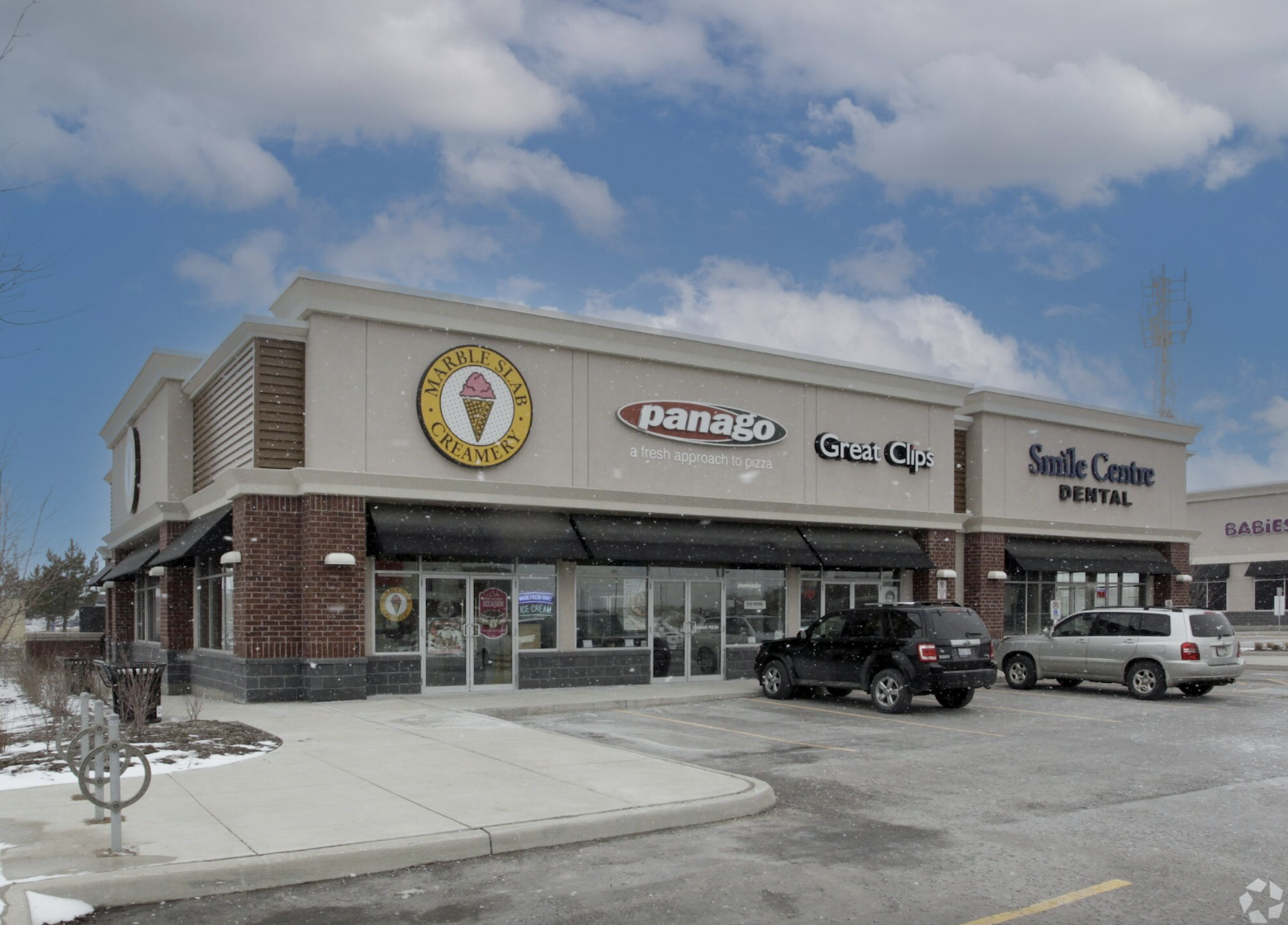
US Ice Cream Brand Warms Up to Canada Expansion
Fat Brands To Add 40 Marble Slab Creamery Locations North of Border
Los Angeles-based Fat Brands is betting that Canadians want more frozen treats with the company’s plans to expand its Marble Slab Creamery chain north of the border.
Fat Brands, which owns 18 restaurant brands that include Johnny Rockets, Fatburger and Twin Peaks, said it is partnering with Canadian Ice Cream Co. in a development deal to open 40 franchised Marble Slab locations in Canada over the next decade. The first of the new locations is slated to open by the end of 2024.
The deal will boost the number of Marble Slab stores in Canada to 140 from 100 locations today, according to a statement. Terms of the development deal were not disclosed.
“We are very pleased with the continued market growth in Canada” of Marble Slab, said Taylor Wiederhorn, chief development officer of Fat Brands, in a statement.
The expansion is just the latest by an American restaurant chain targeting growth in Canada. Two American retail sandwich chains — Jersey Mike’s Subs and Jimmy John’s — announced plans last month to expand into Canada, representing both brands’ first international expansions.
The ideal space for a Marble Slab location is between 500 square feet and 1,800 square feet, according to the company’s website.
Marble Slab was started in Houston in 1983 and introduced to Canada in 2003 in Calgary. The ice cream company now has stores across the country in British Columbia, Yukon, Alberta, Saskatchewan, Manitoba, Ontario and Nova Scotia.
“We continue to expand the concept across Canada and the world,” said Wiederhorn with Fat Brands.
Source CoStar. Click here to read a full story.

First Capital Makes Another $116 Million in Asset Sales
Toronto REIT Almost Two-Thirds of Its Way to $1 Billion Disposition Target
Toronto-based First Capital REIT, one of Canada’s largest retail landlords, has sold another $116 million in assets as part of a plan to sell $1 billion in property.
First Capital, the owner of interests in 22.3 million square feet of gross leasable real estate, first announced its portfolio optimization plan in 2022 with an eye on reaching its sales target in 2024.
To date, First Capital has completed or has under firm agreement approximately $633 million of dispositions under the plan at an average premium to its carrying value under International Financial Reporting Standards, or IFRS, of 21%.
“Our investment team had an outstanding year executing the plan,” said Adam Paul, chief executive of the REIT, on a call with analysts Wednesday. “We can sell the right assets for FCR at big prices.”
The $116 million of new dispositions are subject to firm agreements but include a 50% interest in the Royal Orchard development site, located in Thornhill north of Toronto, the 68-suite Circa Residences in Richmond, British Columbia, a 41.7% interest in 1071 King St. W, in Toronto — reducing the REIT’s interest to 25% — and a small medical office building at 71 King St. W in Mississauga, outside Toronto.
The property sales are subject to all-cash purchase agreements with closing dates from January to March.
For the fourth quarter that ended Dec. 31, First Capital had net income of $173.8 million, compared to $42 million a year earlier. The value of the REIT’s investment properties jumped by $167.6 million in the quarter as demand for retail expanded post-pandemic.
The REIT saw occupancy jump to 96.2% from 95.8% for the same period a year earlier. First Capital also reached an all-time high average in-place rent of $23.34 per square foot.
“There has been almost no new supply of grocery-anchored centres for several years,” said Paul, noting on the call that Canada’s population has continued to climb, driving people to malls. “Fundamentals are solid, and we expect that to continue.”
Michael Markidis, an analyst with BMO Capital Markets, agreed the results were “solid” and expects the company’s leasing momentum to carry into 2024.
Source CoStar. Click here to read a full story.

Allied Properties REIT Takes $500 Million Loss Amid Writedowns
Toronto-Based Office Landlord’s CEO Sees Inflection Point in Office Market
Allied Properties Real Estate Investment Trust recorded an almost $500 million loss in the fourth quarter as the Toronto-based office REIT took writedowns on its assets in Canada’s four largest cities by population.
The firm said operating income from continuing operations was $82 million, up 6% from the same quarter last year. Still, the REIT recorded a $70 million loss in fair value on investment property in Toronto and Montreal and a $425 million loss on rental property valuations in Toronto, Montreal, Calgary and Vancouver, to contribute to a $499 million net loss for the period that ended Dec. 31.
“We believe in Canada’s future, and much of the economic and cultural future is concentrated in our cities. While far from perfect, our cities continue to thrive and demonstrate resiliency. We’re confident they’ll continue to attract a disproportionate share of global talent, which drives economic and cultural growth and evolution,” said Cecilia Williams, CEO of Allied, in a conference call with analysts Thursday.
Allied expressed confidence in the REIT’s portfolio even as reports revealed office vacancies hit an all-time high nationally in the last quarter.
“We’re heading into 2024 with a lower level of economic occupancy than we’ve ever had. While confident that our leasing activity will translate into improved economic occupancy over the course of 2024, the timing is difficult to predict,” said Williams.
Mark Rothschild, an analyst with Canaccord Genuity, said the outlook for the REIT remains challenged, and investors seemed to agree as shares of the REIT traded down $1.74, or 8.91%, to $17.78 on the first day of trading following the results, which were released after the market closed Wednesday.
“While management previously indicated that occupancy should improve in 2023, due to continued soft demand for leasing office space, this was not achieved,” said Rothschild in a report to investors that noted the REIT’s occupancy rate declined to 86.4% at year-end, compared to 86.8% in the third quarter of 2023 and 89.6% in the fourth quarter of 2022.
The analyst lowered his net asset value per unit to $20.25 from $22 after Allied’s earnings were released. Rothschild noted the REIT’s International Financing Reporting Standards dropped net asset value 8.5% to $45.60.
Leasing Momentum Improves
Allied’s CEO maintains leasing is improving and told analysts that the productivity of the portfolio increased for the 18th consecutive quarter, and lease renewals had healthy spreads compared to in-place rents.
“We believe we’re at an inflection point and that leasing momentum, which accelerated in the last quarter of 2023, will continue through the coming year,” said Williams during the REIT’s call with analysts.
Jonathan Kelcher, an analyst with TD Securities, expects continued near-term volatility in Allied’s share price.
“We believe (the change in share price) is currently more sentiment-driven than based on fundamentals,” said Kelcher, who called the drop in the share price an overreaction.
“It was not surprising to us that 2024’s outlook would be more uncertain than in previous years (which our estimates already reflected) with a higher/more volatile interest rate environment extending the decision-making time frame on what are large, multi-year capital commitments by tenants. We were encouraged to hear that activity remains robust with touring activity up yearly.”
Brad Sturges, an analyst with Raymond, wondered in a note about Allied’s development loan exposure to Vancouver-based Westbank Corp. and called it a near-term investment risk.
“Media outlets have recently published that Westbank Corp. faces litigation for unpaid bills for several ongoing projects with various construction and trade groups,” Sturges said in a note that pointed to joint ventures with Westbank for four projects in Vancouver and Toronto with outstanding credit facilities and development loans of about $500 million as of Dec. 31.
Allied has told media outlets it faces no insolvency issues.
Sturges said Allied’s “balance sheet (is) in a good position to fund its ongoing development and upgrade capital commitments.”
Source CoStar. Click here to read a full story.


